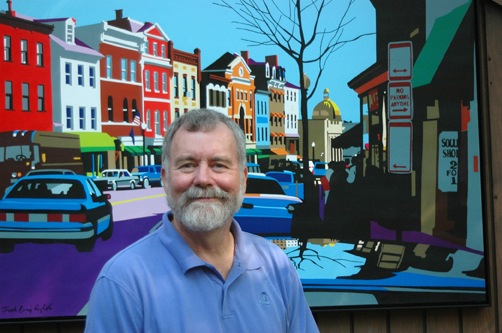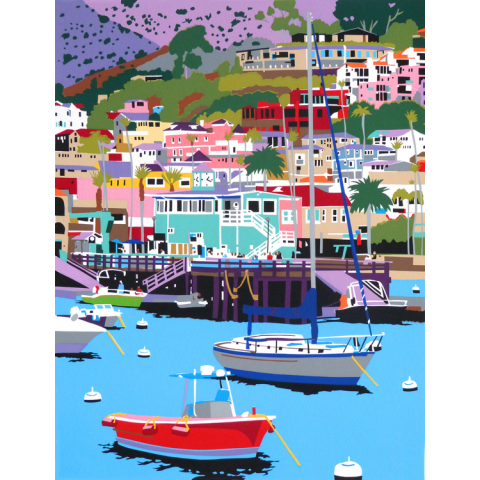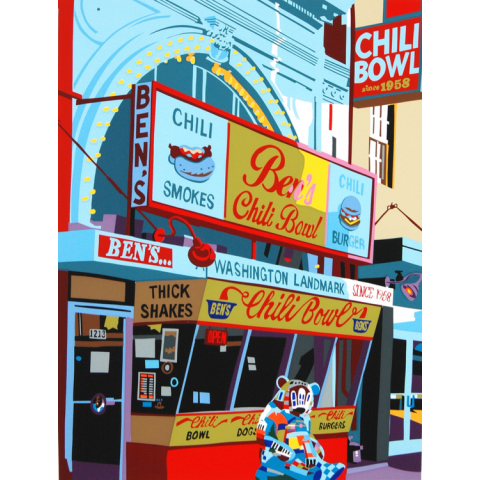|
Joseph Craig English
Printmaking
|
 |
From the beginning of his life, Joseph Craig English was destined to become an artist. His mother ordained it, telling his father before he was born, that if this baby was a boy he would be an artist. As soon as he was able to hold a brush, he was encouraged to paint. His early efforts were brightly colored and energetic, not unlike his work today. He was introduced to silkscreen printmaking by his 10th grade art teacher and fell in love with the intense color and flat finish of the inks. By 1972 he had begun printing in earnest. Working as a designer at an advertising agency in Washington, DC, by day, and printing at night and through the weekends he soon grew frustrated with the split careers. In 1974 he resigned from the agency and devoted all his time to painting and making his silkscreen prints.
In 1975 the artist and his wife purchased a home in the historic town of Washington Grove, Maryland and began building a studio. By 1980, with his works' popularity increasing, English was already breaking ground for his new studio and doubling the size of the existing house. Believing that the best way to present art to the public was in a theater that was relaxed and comfortable, the artist took to the streets, showing his work at art festivals throughout the country. Developing a huge customer base, English was now being approached by art galleries who found his upbeat, beautifully crafted prints to be an exceptional value in the art market.
The artist has always loved his time in the studio. The focus of his work continues to be the things that we see everyday but so often take for granted. By the early 1990's the roof came off the studio and a huge second floor studio was built in an attempt to accommodate the new projects being created. Now added to the heavy printmaking schedule were a variety of new projects that included sculpture and painting. Giant Food Corporation commissioned a group of freestanding figures that were crafted of steel plate, painted in bright colors and erected at one of the busiest intersections in Montgomery County, Maryland. Soon to follow was a commission from Bethesda Community Baseball. This ten foot high stainless steel sculpture of Walter Johnson, the Washington Senators' baseball great now graces the Povich Field Stadium in Bethesda.




